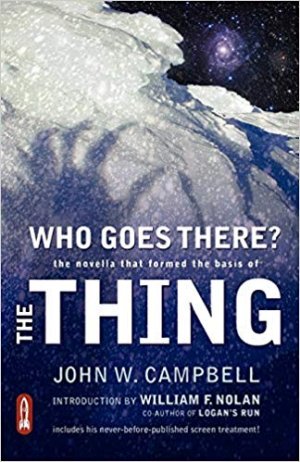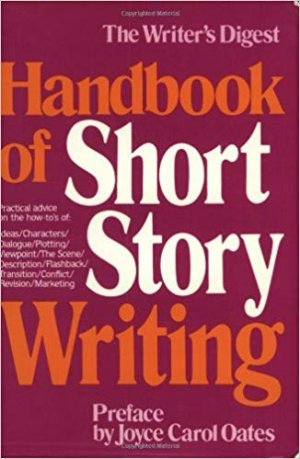I wrote in Great Opening Lines – and Why! (Part 3 – Some Great Opening Lines) that I’d share more great opening lines as I found them.
 “The place stank.” -John W. Campbell’s Who Goes There?
“The place stank.” -John W. Campbell’s Who Goes There?
Tight and direct. Simple and evocative. With nothing else, you know (or at least I did) the narrator’s gender, their background, their mindset, that the story’s going to be about some kind of unpleasantness, and what to expect.
It’s worth reading the entire opening paragraph because it builds so beautifully off that great opening line: The place stank. A queer, mingled stench that only the ice-buried cabins of an Antarctic camp know, compounded of reeking human sweat, and the heavy, fish-oil stench of melted seal blubber. An overtone of liniment combated the musty smell of seat-and-snow-drenched furs. The acrid odor of burnt cooking fat, and the animal, not-unleasant smell of dogs, diluted by time, hung in the air.
If you have any doubts after reading the opening line, the rest of the first paragraph leaves no room for questioning. The entire story is a masterclass in storytelling and storycrafing technique for authors and writers of any genre. I offer a full review on Goodreads
 “He – for there could be no doubt of his sex, though the fashion of the time did something to disguise it – was in the act of slicing at the head of a Moor which swung from the rafters.” – Virginia Woolf’s Orlando
“He – for there could be no doubt of his sex, though the fashion of the time did something to disguise it – was in the act of slicing at the head of a Moor which swung from the rafters.” – Virginia Woolf’s Orlando
Here is the opening line to an incredible fantasy book that (as far as I know) has never been listed as fantasy. The first line tells the reader that the book is going to be about sex, but not coitus (there’s plenty of that, don’t worry), instead sexual identity. I’ll admit here that transgendering is an oddity to me. So many people feeling a need to specify “He/Him” and “She/Her” in their social profiles. I wonder if this need to publicly self-identity is the outcome of better surgical techniques, increased awareness, or something indicative of the unsurety of our cultural identity as a whole.
Such concerns didn’t exist in Woolf’s time. She was able to write a political novel with a protagonist who could – quite literally – take a long view and the fantasy element is subtly hammered home in the last chapter. Hinted at in the first line, hammered in the last chapter – Yowza!
Nice.
I’ve written a full review on Goodreads.
Do you have any great opening lines you’d like to share?
I’d love to know them. There’s a catch, though. You have to explain in context why a line is great. Saying a line is great because it comes from some great literature doesn’t cut it. Quoting from archaic and/or little known works doesn’t cut it.
Feel free to quote from archaic and/or little known works, just make sure you give reasons why something is great. I stated the Great Opening Lines criteria back in Great Opening Lines – and Why! (Part 2 -What Makes a Great Opening Line?).
So by all means, make the claim. Just make sure you provide the proof according to the guidelines given. If not, your comment won’t get published.
Yes, this post is about a week late. This blog was transferred and it took a while. Sorry for the delay.



